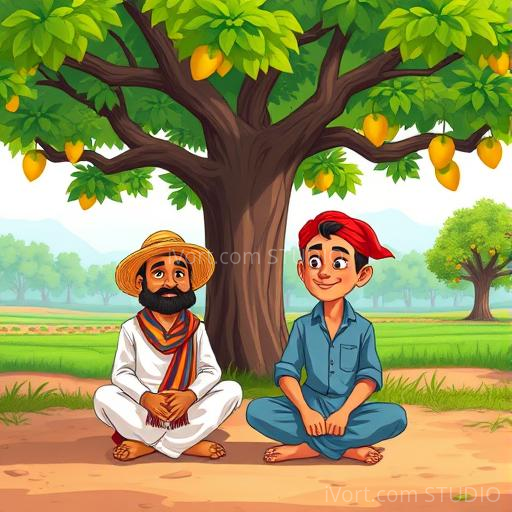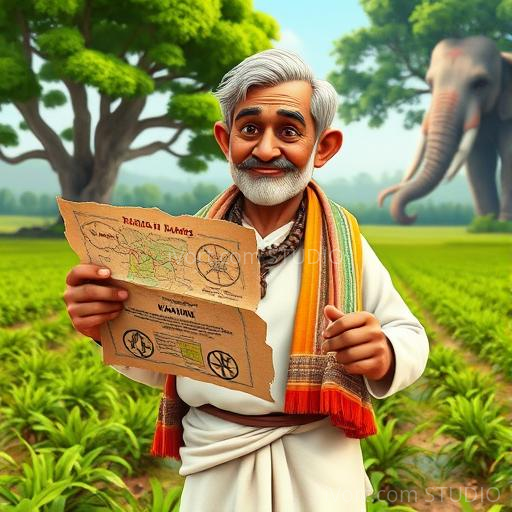In a lush Indian village surrounded by golden fields of wheat and vibrant mango trees, Raju the farmer was known for his honesty and hard work. One day, his old friend, Bhim, visited him with a mischievous smile. Bhim was always looking for ways to get more without working hard. As they sat under a big peepal tree, Bhim suggested they find a treasure hidden in Raju’s farm. Raju was curious but cautious, wondering if Bhim’s greed might cause trouble.

Bhim, pretending to be helpful, pulled out an old, crinkled paper he claimed was a treasure map. Raju’s eyes widened with excitement. The map showed a path winding through the fields, past a banyan tree, and leading to a big rock shaped like an elephant. But as Raju looked closer, he noticed strange symbols and a warning written in tiny letters: 'Greed leads to trouble.' Raju felt a flicker of doubt but was tempted by the promise of treasure.

Excited and eager, Raju and Bhim followed the map through the fields. They crossed a small stream, climbed over a wooden bridge, and finally reached the big rock shaped like an elephant. But just as they were about to dig, dark clouds gathered, and a sudden gust of wind blew the map away! Raju felt a pang of worry. Bhim’s greedy eyes gleamed as he tried to grab the map, but Raju remembered the warning and decided to be cautious.

Raju, remembering the warning, told Bhim, ‘Greed can lead us astray. True treasure is honesty and kindness.’ Just then, the clouds cleared, and a rainbow appeared. Raju found a small, shiny stone at the foot of the rock—not gold or jewels, but a reminder that happiness comes from good deeds. Bhim looked ashamed and promised to be honest. They returned to the village, wiser and happier, knowing that greed can never bring true joy.

